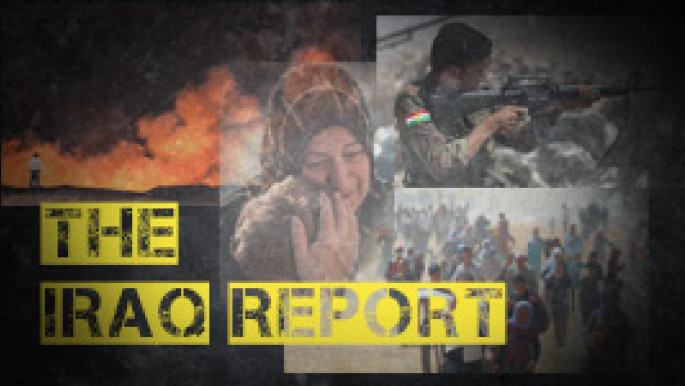US closes consulate in Iraq's Basra, blaming Iran
The United States on Friday shut its consulate in the protest-hit southern Iraqi city of Basra, blaming "indirect fire" by Iranian militias.
Secretary of State Mike Pompeo ordered all but emergency staff to leave Basra, with consular duties to be taken over by the embassy in Baghdad, after claiming Iran-backed forces had threatened US personnel and facilities.
However, according to US media reports, the closure of the consulate is potentially being masked as a security issue.
Basra has been rocked by weeks of demonstrations by Iraqis protesting unemployment and government inefficiency in the oil-rich south.
Pompeo, who has made rolling back Iranian influence in the region a top priority, said the Iranian government and the Islamic Revolutionary Guards Corps Quds Force are threatening US personnel and facilities, and blamed Iranian militias for "indirect fire" - which usually means rockets or artillery - against the US consulate.
"I have advised the government of Iran that the United States will hold Iran directly responsible for any harm to Americans or to our diplomatic facilities in Iraq or elsewhere and whether perpetrated by Iranian forces directly or by associated proxy militias," he said in a statement while in New York to attend the UN General Assembly.
"I have made clear that Iran should understand that the United States will respond promptly and appropriately to any such attacks," he added.
 |
|
| Catch up with our weekly round-up from Iraq |
A senior Iraqi security official, who spoke on the condition of anonymity because he was not authorised to talk publicly, told Washington Post the decision did not appear driven by any credible threat from Iran or the militias it supports.
"We are not aware of any intention by Iran or its friends in Iraq to attack American diplomats or the consulate," the official said. "This is another unfortunate move that is making Iraq the playground for America's quarrel with Iran."
Iran and America have been competing for influence in Iraq as Baghdad looks to form a new government since May elections.
The State Department did not comment on whether the consulate's closure would be permanent. It has an estimated 1,000 employees, mostly contractors working in security, food service and other support jobs.
The New York Times reported the State Department has been considering for more than a year shutting down the Basra consulate to save money, citing three former officials. The consulate costs at least $200 million to operate each year, with estimates reaching $350 million, the Times said.
The State Department meanwhile sent out a renewed advisory telling Americans not to travel to Iraq.
"US citizens in Iraq are at high risk for violence and kidnapping," the advisory states.
"Numerous terrorist and insurgent groups are active in Iraq and regularly attack both Iraqi security forces and civilians."
Iran consulate burned
Ruled by Shia clerics, Iran has a strong influence in Iraq, especially in the country's Shia-majority south.
Iran's consulate itself was earlier burned down during the protests, although no one was injured and Tehran quickly opened a new mission.
Iran's foreign ministry earlier called US allegations of fomenting violence in Basra "astonishing, provocative and irresponsible."
Speaking at the General Assembly, Iranian President Hassan Rouhani also dismissed the US criticism of involvement in its neighbour, questioning why Washington itself was involved in a country so far away.
Earlier this month, three mortar rounds also hit the fortified Green Zone area in Baghdad, home to the US embassy, without causing injuries and with the perpetrators unclear. The consulate was not evacuated in this instance.
Diplomatic security is a key priority for the United States and Pompeo, who as a congressman went on the offensive against former secretary of state Hillary Clinton over a deadly attack on the US consulate in the eastern Libyan city of Benghazi.
President Donald Trump's administration has withdrawn from a nuclear deal with Iran, reimposed sanctions and vowed to roll back the Shia power's role in the region including in Syria, Yemen and Iraq.
Despite warnings of increased Iranian belligerence, the Pentagon has said naval incidents in the Gulf have completely dropped off in recent months.
The Iraq Report is a weekly feature at The New Arab.
![basra unrest [Getty] basra unrest [Getty]](/sites/default/files/styles/image_345x195/public/media/images/8ED28DE0-9C4D-41C6-8751-D19C01345829.jpg?h=d1cb525d&itok=mQ_dstq_)




 Follow the Middle East's top stories in English at The New Arab on Google News
Follow the Middle East's top stories in English at The New Arab on Google News

![Israeli forces ordered bombed Gaza's Jabalia, ordering residents to leave [Getty]](/sites/default/files/styles/image_330x185/public/2176418030.jpeg?h=a5f2f23a&itok=_YGZaP1z)
